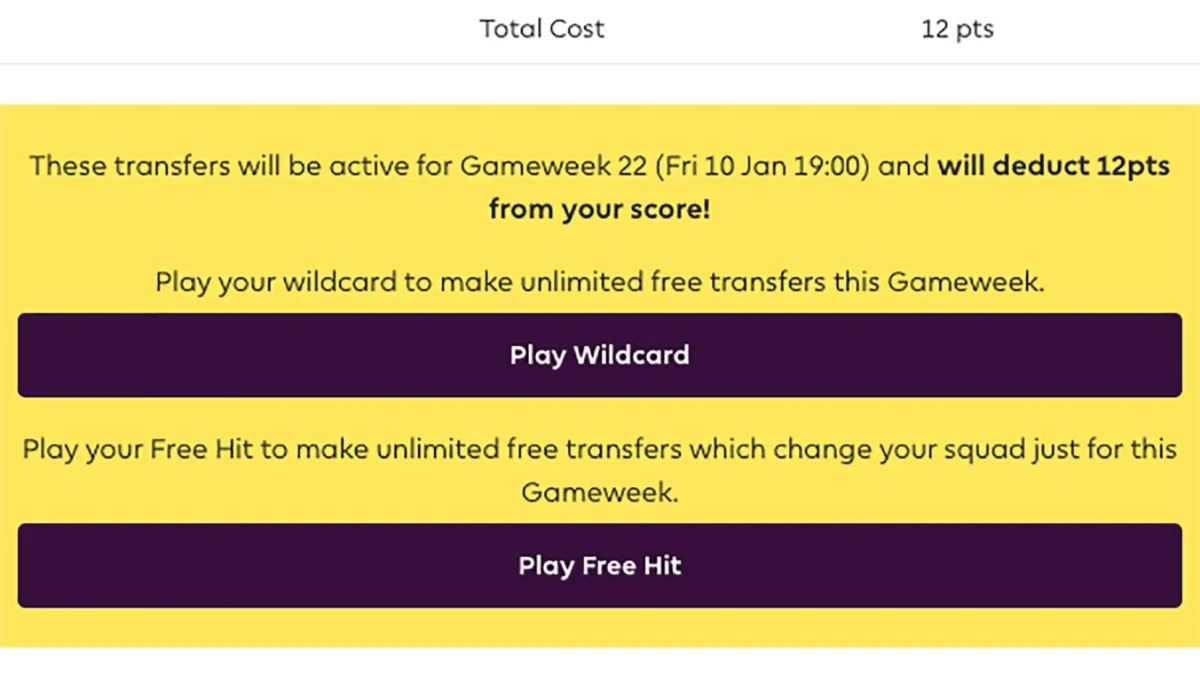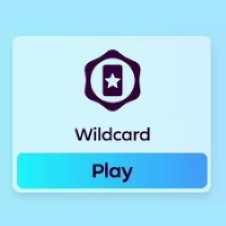 22 Jun, 2025
22 Jun, 2025
Free Hit vs Wildcard – What is the Difference?
Do you want to know the difference between the infamous Wildcard chip and Free Hit chip in FPL? If that’s a yes, you’re in the right place! Keep reading to discover the basics all FPL managers need to know about the both the Wildcard and Free Hit chip, including the rules and key FAQ’s!

In FPL two of the most important factors in a successful season is how managers use their Free Hit and Wildcard chips. While both permit you to make unlimited transfers to your team, the two chips are different with differing rules, impacts and viable strategies.
What is a Free Hit?
- The Free Hit chip permits managers to make limitless transfers for a solitary Gameweek.
- FPL managers get 1 Free Hit chip per season.
- When the Free Hit chip is activated, FPL managers may make as many transfers as they desire without penalty.
- Your team will return to it’s previous iteration after the Gameweek ends.
- The Free Hit chip is particularly useful for blank or double Gameweeks.
What is a Wildcard?
- The Wildcard chip permits you to make limitless transfers to your team for the Gameweek it is active, without any point deductions. However, unlike the Free Hit chip, the transfers you make using your Wildcard chip will remain after the Gameweek ends. These are permanent transfers to your team.
- Normally, transferring players beyond your allotted free transfers results in a penalty (-4 for every non-free transfer). The Wildcard chip allows you to reshape your whole team if you desire, without stressing over losing points to do so.
- Each FPL season gives you two separate Wildcard chips at two different points of the Premier League season:
First half Wildcard: Available from GW2 until December 29th.
Second half Wildcard: The second Wildcard managers have will be available on the 29 Dec once the deadline has passed (prior to the January transfer window opening) and remains available until the end of the season.


Key difference between a Wildcard and a Free Hit?
Free Hit changes last one solitary Gameweek, while the Wildcard transfers are a way to rebuild your team with transfers that will remain permanently. The other key distinction is you get 1 Free Hit per season, whereas managers get 2 Wildcards per season.
FAQ’s:
Free Hit vs Wildcard FAQ's
| Q: Can I cancel my Free Hit or Wildcard chip after I have activated them? | A: You cannot cancel your Free Hit or Wildcard after you have activated them |
| Q: How many Free Hit/Wildcard chips do I get a season? | A: Starting in the 25/26 season, FPL managers now get 2 Free Hit's and 2 Wildcard chips a season. 1 for the first half of the season, 1 for the second half. |
| Q: Can I play multiple chips at the same time in FPL? | A: No, you can only have 1 chip active at a time. |
| Q; What is the difference between a Free Hit and a Wildcard in FPL? | A: Wildcard transfers are permanent changes to your FPL team, whereas the transfers you make with your Free Hit will only remain for that single Gameweek the Free Hit chip is active for. |
Conclusion:
Knowing how and when to utilise these pivotal chips can be the difference between a successful season and a season to forget. The Free Hit chip is for managers to maximise the points return in a single Gameweek, whether that’s a blank GW where many of your players are not playing a game that week, or a big double GW where you are looking to achieve a high points total for that GW. The Wildcard chip is chip you want to incorporate more long term strategy and thinking, because the unlimited transfers you make with your Wildcard will remain. These transfers are permanent ones, not just for the single GW like with your Free Hit!
Check out our more detailed chip articles below, which include when and how to activate the chip in question and the best strategies to maximise your returns!
